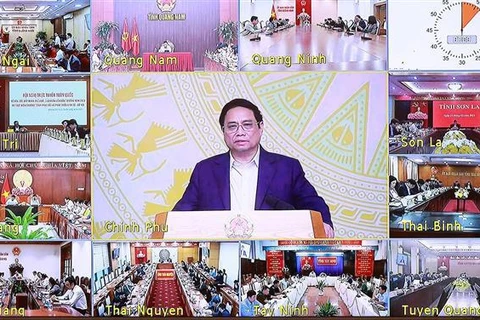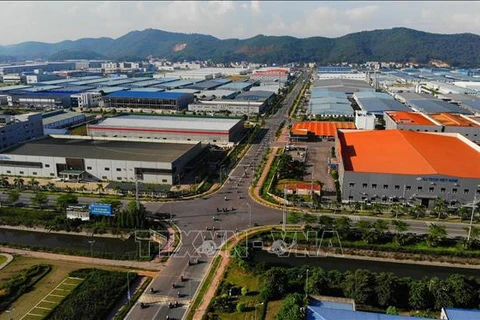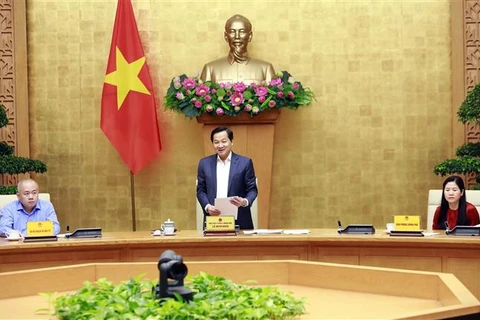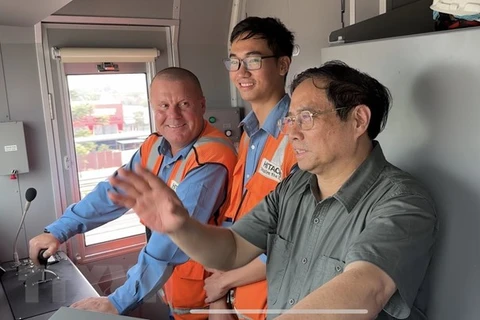 Vice Chairman of the National Assembly Nguyen Duc Hai (centre) leads the meeting on April 18. (Photo: quochoi.vn)
Vice Chairman of the National Assembly Nguyen Duc Hai (centre) leads the meeting on April 18. (Photo: quochoi.vn) The meeting also discussed the budget for projects under the national socio-economic recovery and development programme.
In a report presented at the meeting, Deputy Minister of Planning and Investment Tran Quoc Phuong said that the total capital for public investment of the medium term 2021-25 was approved by the NA at 2.87 quadrillion VND (122.1 billion USD , of which 2.44 quadrillion VND (103.8 billion USD) have been assigned to projects, leaving nearly 430 billion VND (18.3 billion USD) unallocated.
The total capital for the socio-economic recovery and development programme is 176 trillion VND (7.5 billion USD), of which 14.1 trillion VND (602 million USD) has not been assigned to projects.
Deputy Minister Phuong said that the compiling and reporting processes had encountered difficulties in planning, site layout and balance with the local budget, as well as the technical and price criteria and standards.
It led to ministries and localities requiring more time to complete the dossiers to submit for approval.
Although other localities had completed project dossiers, they had to wait until the provincial People’s Council meetings for submission.
At the discussion, delegates said that the unallocated capital was quite substantial, which would impact public investment progress and socio-economic development missions if not assigned with a detailed plan to projects qualified for investment.
They said that it was necessary to review and gather options for capital allocation for the 2021-25 public investment plan, which would then be submitted to the NA for assessment and approval at the 5th sitting of the 15th-tenure NA following the laws.
The capital must be allocated to important missions if the unallocated amount is transferred to the contingency budget.
In that case, there would be a significant impact in achieving the three breakthrough strategies, especially in terms of strategic infrastructure, the five-year socio-economic development goals, and the goals of the medium-term public investment plan for 2021-25.
Suppose the socio-economic recovery and development programme fails to continue receiving the capital. In that case, the impact might extend to the implementation of key transport projects and the healthcare sector, affecting the overall programme and the 2023 plan.
Delegates at the meeting also required departments to recognise their responsibilities for the delay in capital allocation and said that the situation would persist if no stringent measures were taken.
The Government must submit a comprehensive report and determine a deadline to allocate the remaining capital.
NA Vice Chairman Hai said that while the matter was beyond the NA Standing Committee’s authority for comment, the body held responsibility for the issues arising during actual implementation.
Regarding the capital reallocation between ministries, central departments and localities within the committee’s authority according to the public investment law, he requested that the government conduct a separate report to submit to the NA Standing Committee for approval.
Hai also asked the NA Committee on Finance-Budget and the Ministry of Planning and Investment to report to and coordinate with the government to review and clarify the goals of urgent projects, programmes and structures that have completed the procedures for investment.
The report would then be submitted to the NA Chairman and Standing Committee at the upcoming 5th NA plenary session for allocation decision./.
VNA
























